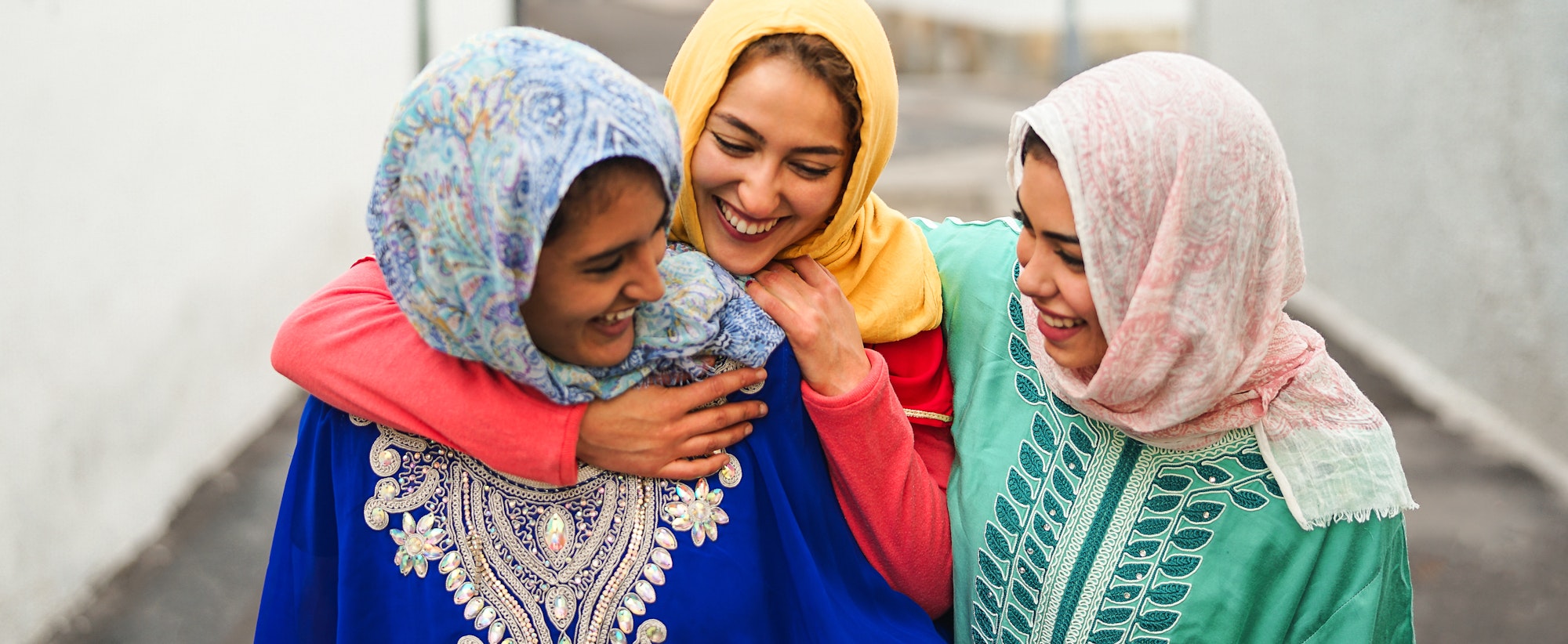
Youth are the backbone of any society. In Islam, young people have historically played pivotal roles in shaping the future, from the Companions of the Prophet Muhammad (PBUH) to key figures in Islamic history. Today, in the West, where Muslim communities face unique challenges, youth leadership is more important than ever. By engaging the younger generation through youth-led initiatives and programs, we can empower them to take ownership of their identity and equip them to become the future leaders of the Muslim community. Join a Youth Group!
In this article, we’ll explore the importance of Muslim youth groups, how they foster leadership skills, and why youth-led initiatives are critical for the future of Islam in the West.
One of the greatest challenges Muslim youth face in Western societies is navigating the complexities of their identity. Balancing faith, cultural background, and societal expectations can often be confusing and isolating. Muslim youth groups provide a safe space where young people can freely express themselves, explore their Islamic identity, and find support from peers who understand their experiences.
These groups create an environment where youth can ask difficult questions, share their struggles, and grow in their faith without fear of judgment. By being part of a community that validates their Islamic identity, young Muslims are more likely to feel confident and proud of who they are, which is the foundation for developing future leaders who are unapologetic about their faith.

Youth-led initiatives allow young Muslims to take responsibility for the activities and programs they participate in. Rather than simply attending events organized by elders, youth are given the opportunity to plan, organize, and lead. This hands-on experience develops key leadership skills that will serve them in all aspects of life, from their careers to their roles in the community.
Some of the leadership skills young Muslims develop through youth groups include:
These leadership experiences don’t just prepare youth for future roles within the Muslim community; they also equip them with skills that are highly valuable in the professional world and society at large.
One of the key benefits of youth-led initiatives is that they foster a sense of responsibility and ownership among young Muslims. When youth are empowered to make decisions and lead projects, they begin to see themselves as active contributors to their community rather than passive participants. This sense of responsibility encourages them to think beyond their immediate needs and focus on the well-being of the larger Muslim Ummah (community).
Youth groups often engage in community service projects, social justice initiatives, and interfaith dialogue, helping young Muslims realize that they have a role to play in improving their society. This sense of accountability to both their local and global community lays the foundation for future leaders who are not only concerned with their personal growth but also with the betterment of the world around them.

In many Muslim communities, there can be a generational gap between elders and youth. Youth-led initiatives bridge this gap by creating opportunities for the younger generation to engage with and contribute to the broader community. Whether it’s organizing fundraising events, leading charity drives, or hosting educational workshops, these initiatives demonstrate to the wider community that youth are capable of leadership and positive contributions.
Additionally, youth groups help young Muslims develop strong connections with mentors, local imams, and community leaders who can provide guidance and support. These relationships are essential for nurturing future leaders who understand the importance of tradition, wisdom, and working with others for the common good.
By involving youth in meaningful projects and allowing them to take leadership roles, communities can foster stronger intergenerational ties and ensure that the torch of leadership is passed on to a capable and motivated generation.
In a Western context, Muslim youth are often faced with societal pressures that may challenge their Islamic values. Youth groups provide a space where they can learn to navigate these challenges while staying true to their faith. Through discussions, workshops, and guest speakers, youth groups teach young Muslims how to integrate Islamic principles into their daily lives, whether it’s at school, work, or in social settings.
Beyond personal development, youth-led initiatives can also promote civic engagement. Many youth groups organize activities that encourage young Muslims to get involved in local politics, social justice movements, and interfaith work. These initiatives not only help young Muslims become informed citizens but also allow them to showcase the positive contributions of the Muslim community to the broader society.
By participating in civic engagement, youth groups cultivate leaders who are not only grounded in their Islamic values but also actively involved in shaping the future of their local and global communities.
At the heart of every youth group is the concept of brotherhood and sisterhood. The friendships formed in these groups are often lifelong and provide a strong support system for young Muslims. These bonds help youth feel connected to the larger Muslim community and give them the encouragement they need to pursue leadership roles.

Youth groups provide an opportunity for young Muslims to connect with peers who share their values, concerns, and aspirations. This sense of belonging can be especially important in Western societies, where Muslims may feel like a minority. The strong sense of community and mutual support that develops in youth groups fosters a spirit of cooperation and shared responsibility, which is essential for effective leadership.
By investing in youth-led initiatives and programs, Muslim communities are actively preparing the next generation of leaders. These young people will be the ones leading mosques, Islamic organizations, and social justice movements in the future. They will be the educators, professionals, and activists who represent Islam in Western society, and the foundation they build now will shape their ability to lead in the future.
Youth-led initiatives help young Muslims develop a deep sense of purpose and confidence in their ability to lead. They are given the opportunity to make mistakes, learn from them, and grow in a supportive environment. This process of growth and self-discovery is essential for creating leaders who are not only capable but also compassionate and principled.
Muslim youth groups are essential for building the future leaders of the Muslim community in the West. By providing a safe space for identity formation, developing leadership skills, fostering a sense of responsibility, and promoting Islamic values, youth-led initiatives prepare young Muslims to take on leadership roles with confidence and purpose.
Investing in the youth today ensures that the Muslim community will have strong, capable leaders tomorrow—leaders who are grounded in their faith, committed to their communities, and ready to make a positive impact on the world. By supporting youth-led programs, we are empowering the next generation to rise and lead with integrity, compassion, and a deep sense of responsibility to both their faith and society.